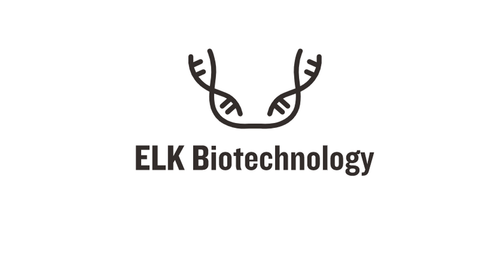Product Description
Human Beta-adrenergic receptor kinase 1 (ADRBK1) ELISA Kit | AE24125HU | Abebio
Species Reactivity: Human (Homo sapiens)
Abbreviation: ADRBK1
Alternative Name: BARK1; BETA-ARK1; FLJ16718; GRK2; beta-adrenergic receptor kinase 1
Application: ELISA
Range: 0.312-20 ng/mL
Sensitivity: 0.133 ng/mL
Intra-Assay: ≤5.8%
Inter-Assay: ≤8.7%
Recovery: 1, 1
Sample Type: Serum, Plasma, Other biological fluids
Detection Method: Sandwich
Analysis Method : Quantitive
Test Principale: This assay employs a two-site sandwich ELISA to quantitate ADRBK1 in samples. An antibody specific for ADRBK1 has been pre-coated onto a microplate. Standards and samples are pipetted into the wells and anyADRBK1 present is bound by the immobilized antibody. After removing any unbound substances, a biotin-conjugated antibody specific for ADRBK1 is added to the wells. After washing, Streptavidin conjugated Horseradish Peroxidase (HRP) is added to the wells. Following a wash to remove any unbound avidin-enzyme reagent, a substrate solution is added to the wells and color develops in proportion to the amount of ADRBK1 bound in the initial step. The color development is stopped and the intensity of the color is measured.
Product Overview: Beta-adrenergic receptor kinase (BARK) phosphorylates the beta-2-adrenergic receptor and appears to mediate agonist-specific desensitization observed at high agonist concentrations. BARK is a ubiquitous cytosolic enzyme that specifically phosphorylates the activated form of the beta-adrenergic and related G protein-coupled receptors. By study of rodent/human hybrid cells retaining various human chromosomes and parts of chromosomes, Benovic et al. (1991) demonstrated that the ADRBK1 gene segregates with the long arm of chromosome 11, centromeric to 11q13, i.e., 11cen-q13. Benovic et al. (1991) mapped the homologous gene to mouse chromosome 19.
Stability: The stability of ELISA kit is determined by the loss rate of activity. The loss rate of this kit is less than 5% within the expiration date under appropriate storage condition. The loss rate was determined by accelerated thermal degradation test. Keep the kit at 37°C for 4 and 7 days, and compare O.D.values of the kit kept at 37°C with that of at recommended temperature. (referring from China Biological Products Standard, which was calculated by the Arrhenius equation. For ELISA kit, 4 days storage at 37°C can be considered as 6 months at 2 - 8°C, which means 7 days at 37°C equaling 12 months at 2 - 8°C) .
 Euro
Euro
 USD
USD
 British Pound
British Pound
 NULL
NULL








